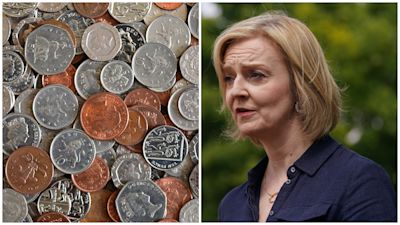Insight
Truss's National Insurance cut worth just 76p a month to poorest households

Liz Truss’s plan to reverse the recent increase in National Insurance contributions would save households on the lowest incomes an average of just 76 pence a month, according to analysis by the Tony Blair Institute for Global Change (TBI). The study suggests that, if Ms Truss becomes prime minister, the same tax cut would leave the richest households in the UK better off by £93 a month.High inflation hurts the poorest the most, and with energy bills set to surge by an astonishing 70% in October, both candidates in the Conservative leadership campaign are under pressure to spell out what additional financial support they would offer to households.
Ms Truss has pledged to scrap the 1.25% National Insurance rise, introduced by Rishi Sunak, in an emergency budget in September.Mr Sunak’s supporters claim the tax cut “won’t touch the sides for most families who will need help most."
New research suggests the wealthiest households stand to gain more than those with the lowest incomes under Liz Truss's plan to scrap the National Insurance rise, reports Business and Economics Editor Joel Hills
The market price of gas has doubled in the last three months as Russia, the world’s largest exporter of gas, has restricted supplies to Europe.In May, when Mr Sunak - then chancellor - announced the last set of support measures from the government, the energy price cap was expected to reach £2,800 in October. Cornwall Insights now expects it to exceed £3,500 before rising to £4,260 in January and £4,420 in April.“I think that for most households this is an emergency,” said Ian Mulheirn, Executive Director and Chief Economist at the TBI.
'Low income households simply are not going to be able to afford their energy bills,' says Ian Mulheirn
He added: “Low income households simply are not going to be able to afford to make the kind of payments that they are going to have to make this October when the price cap jumps, but particularly next April, when the government’s existing support falls away.
"At that point these bills will simply be unpayable for millions of households."
There is considerable taxpayer support currently available but the TBI calculates that, without further measures, households in the lower half of the income distribution can expect to be between £50 and £60 a month worse off on average from October.The 'hit' to incomes rises to around £150 a month for the poorest fifth of households in April as benefits rise significantly (in line with this September’s inflation rate) but the government’s support packages come to an end.
'If Liz Truss becomes prime minister she will have to consider handouts,' says Ian Mulheirn
The TBI analysis assumes inflation hits 13% toward the end of the year, in line with the forecast published last week by the Bank of England, before peaking above 15% in January as the energy price cap rises again.Last week, Liz Truss told the Financial Times that further “handouts” aren’t the answer and that she would look to ease the cost of living pressure by “lowering the tax burden."
According to TBI, reversing the National Insurance increase, designed to fund health and social care, would offset a very large chunk of the October price shock for the wealthiest households but would do very little for the worst off.“If Liz Truss, as prime minister, is going to want to support people then it’s inevitable that she is going to have to look at handouts in some form or another,” insisted Mr Mulheirn.
“If the government really wants to cushion the blow that households face in October and next April then it’s going to have to look at extending and expanding the kind of measures that chancellor Sunak proposed in May."The TBI analysis shows that households with children and those who are out of work are most vulnerable to the inflation shock that’s still to come.
'Targeting money at benefit recipients is something that takes time to implement,' says Ian Mulheirn
Mr Mulheirn, who worked previously as an Economic Advisor at the Treasury, argues that the benefits system is most efficient way to get cash into their pockets and that IT systems will need updating if payments are to be made in time for winter.
“[The government] does have to move quickly. It probably can’t wait until September,” Mr Mulheirn said.
Want a quick and expert briefing on the biggest news stories? Listen to our latest podcasts to find out What You Need To Know